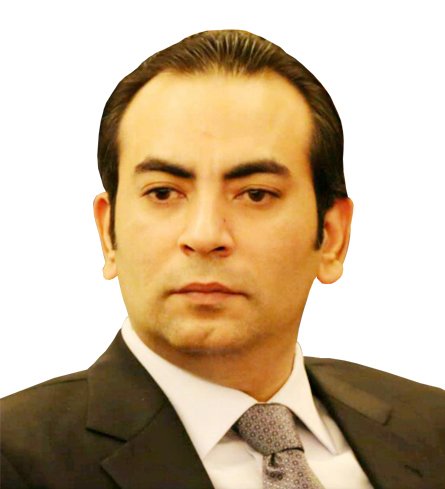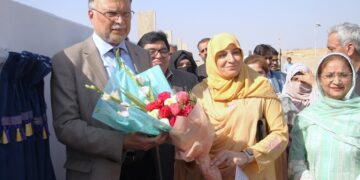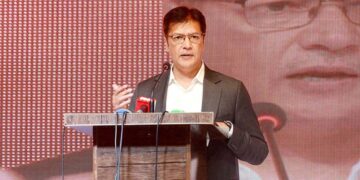Former Vice President of FPCCI Atif Ikram Sheikh on Sunday said tax mechanism should be improved to realise the full potential of taxes without which country cannot survive anymore.
He said that tax evasion is resulting in unrest, inflation, poverty, unemployment and illiteracy in the country which should not be allowed.
Atif Ikram Sheikh who has also served as Chairman PVMA said that loans and grants can never be an alternative to economic activity which is imperative for national development.
He said that the regressive taxation regime introduced by many countries has killed economic activity keeping them dependent on loans and charity.
He added that no amount of borrowing or charity can help a country as economic activity is the only solution to the problems.
Economic activity is reducing due to multiple problems which are triggering unrest, inflation, poverty, illiteracy and child labour putting the future of the country at stake.
He said that our economic situation is unsatisfactory, inflation is highest in the region and increasing taxes are opposing economic progress.
The majority of poor nations impose high taxes to please institutions like the IMF which has reduced their chance of development.
Policies like difficult rules and regulations in the name of reforms, penalising masses to improve GDP and choosing economic depression have failed in many countries therefore we should not repeat these mistakes.
IMF has pressurised Pakistan for a market-based exchange rate which means the devaluation and depreciation of the currency which increases the landed cost of all the imported goods.
According to the seventh and eighth reviews of Pakistan’s economy, the IMF stated that the exchange rate is market-based. As a result, the Pakistani rupee depreciated by 17 percent in July 2022.
IMF provides the rationale that a market-based exchange rate will act as a buffer protecting economic activity and foreign reserves.
They think that a market-based exchange rate will support competitiveness. However, this has never happened in practice. Increased fuel and power prices, increased taxation, ending subsidies, and tightening monetary policies discourage private sector investments and increase the cost of production which makes the industries non-competitive.
Moreover, devaluation increases public debt without borrowing even a single dollar i.e., one-rupee devaluation adds Rs95 billion to public debt without borrowing a single dollar.
As a result, instead of getting stabilized through these measures, the economy has not only gotten worse but also deindustrialized.
Policymakers must learn a lesson from other countries because our economy is still left with some energy which is not favoured by some influential countries, he remarked.




















